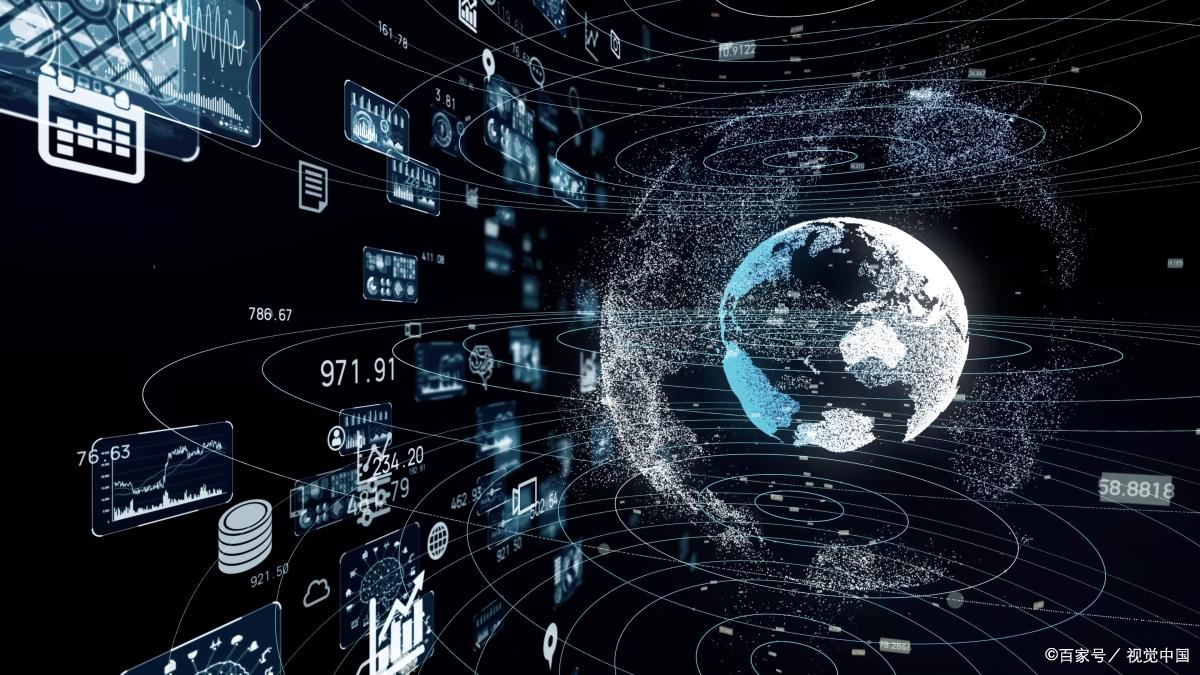Computer majors are currently the highest-scoring majors in colleges and universities, second only to clinical medicine. Due to the wide application characteristics of this type of major in the market, it is very popular and has become a real " Panacea" professional.

Computer majors are currently the highest-scoring majors in colleges and universities, second only to clinical medicine. Due to the wide application characteristics of this type of major in the market, it is very popular and has become a real " Panacea" professional.
Computer majors are a large category of majors, and the disciplines it offers are mainly computer-related disciplines that focus on system and software development. According to different subdivision research directions, the following can be divided into several secondary majors, such as computer science and technology, microelectronics technology, electronic information engineering, network engineering, software engineering, data science and big data technology, integrated circuit design and integration Systems, Internet of Things Engineering, Intelligent Science and Technology, Electronic Science and Technology, Artificial Intelligence, Digital Media Technology, Spatial Information and Digital Technology, Information Security, etc. The following will introduce the differences between these majors. In order to distinguish the subtle differences between different majors, the editor uses one sentence to summarize.
1. Computer science and technology (hardware and software)
The major of computer science and technology focuses more on the design, storage, processing, control and maintenance of computer hardware, which also includes the basic theory and technology of software, such as the maintenance of windows system. By systematically learning the basic theories and basic skills of computers, we will cultivate applied talents for teaching, scientific research and application development departments.
The basic courses of this major include circuit principle, computer principle, microcomputer technology, digital logic, analog electronic technology, etc. After graduation, you can work in positions such as software engineer and hardware engineer.
2. Microelectronics Science and Engineering (manufacturing of microelectronic devices and semiconductor devices)
The major of microelectronic science and engineering mainly studies the basic principles, design methods and manufacturing of integrated circuits and microelectronic devices.
The characteristic courses offered by this major include digital circuits and experiments, signal and system experiments, semiconductor physics and experiments, electronic design automation, microelectronic devices, etc.
3. Integrated circuit design and integrated system (for chips and semiconductors)
The specialty of integrated circuit design and integrated system is a sub-discipline covered by microelectronics and solid-state electronics. It mainly studies the knowledge and skills of the design, structure, development and application of integrated circuits and embedded systems, mainly involving circuits and systems, circuit analysis foundations, signals and systems, microcomputer principles and applications, multi-chip component design, microelectronic materials, Principles and applications of microelectronics, electromagnetic compatibility technology, etc. The undergraduate courses are basic courses, and the core courses are semiconductor physics, digital and analog integrated circuit design, microelectronics technology (chip foundry direction), etc.
4. Software engineering (for software development)
The software engineering major focuses more on the large-scale development, testing, maintenance, system platform, programming language, etc. of various computer software, such as office software, windows operating system, etc. The basic courses offered by this major include advanced mathematics, advanced algebra, discrete mathematics, linear algebra, data structure, algorithm design and analysis, etc. Students who are poor in mathematics cannot learn it. Graduates can enter various IT companies to engage in software design and development, and can also enter the fields of telecommunications, finance, and aviation to engage in business software development, testing, and maintenance.
5. Network engineering (for network operation)

The major of network engineering refers to system engineering that designs and solves network system operation problems in computer application engineering. It is an interdisciplinary subject formed by the close combination of computer technology and communication technology. Network engineering graduates can engage in software and network technology research, office automation processing, web page production, daily operation of computer networks and system maintenance in scientific research institutions, schools, state agencies and other enterprises and institutions.
6. Internet of things engineering (identification, positioning, tracking, supervision)
The major of Internet of Things Engineering is also an interdisciplinary subject, involving communication technology, network technology, sensor technology, embedded system technology, etc. This major requires systematic mastery of the basic theories of the Internet of Things, familiarity with the knowledge and technologies of information transmission, processing, control, etc., as well as smart home (one of the largest application platforms of the Internet of Things), intelligent buildings, traffic control, etc., and training in the design of the Internet of Things, Engineering and technical personnel in development and maintenance. The core courses of this major are Introduction to Internet of Things Engineering, Computer Network Technology, Sensor Principles and Applications, Object-Oriented Programming, etc. The employment direction of this major can be in scientific research institutions, government management departments, real estate, construction engineering companies, etc.
7. Digital media technology (for animation and game development)

Digital media technology is a specialty that is based on technology, supplemented by art, and a combination of the two. Mainly for game development, website art and creative design, scene design, multimedia post-processing, etc., can be engaged in the design and application development of digital media such as pictures, text, audio, and video. This major is more inclined to programming development and so on. In addition to basic courses such as mathematics, physics, computer, and English, the courses offered by this major also include photography, camera technology, art design foundation, web page design and production, digital library design, programming foundation, digital media technology probability, etc. Graduates can engage in animation production, game development, graphic design, network media production, etc. by applying new digital media creation tools.
8. Intelligent science and technology (artificial intelligence and unmanned driving)
The major of Intelligent Science and Technology focuses on a discipline related to intelligent technology such as artificial intelligence, intelligent robot, human-machine recognition, unmanned driving technology, and VR technology.
It mainly studies courses such as brain and cognitive science, mathematical logic, control principle, information network, communication principle, microcomputer principle and interface technology, digital signal processing, mobile intelligence, neural network foundation, machine translation, and intelligent games. The characteristics of wide range and strong practical ability.
9. Spatial information and digital technology (remote sensing, satellite communication and GPS)
Spatial information and digital technology refers to a discipline that realizes visual expression of economy, society, environment, etc. through digital engineering technology on the basis of computer network technology, communication technology and software engineering theory.
For research on geographic information systems, remote sensing, networking, and visualization, such as GPS technology, mobile phone digital maps, etc. The characteristic courses offered include basic signal and system, satellite communication, multimedia technology, virtual reality and simulation, digital surveying and mapping, engineering drawing and computer drawing, network programming, electronic measurement technology, etc. After graduation, you can choose to go to IT companies, or to telecom operators and research institutes.
10. Information security (those who engage in safe Internet access)
The purpose of information security major is to protect the confidentiality, integrity and controllability of user information, and learn the knowledge and technology of network security, so that the hardware, software and data of the user's computer are protected from malicious damage, change and Theft, so as to achieve the purpose of stable and safe operation of the information service system.
In addition to basic courses, special courses include cryptography principles, database principles, information theory foundation, information security architecture, etc. After 5 years of graduates of this major, the monthly salary will be more than 12,000 yuan.

11. Data science and big data technology (using computers to conduct data analysis and statistics for various industries)

The major of data science and big data technology is an interdisciplinary subject based on computer, mathematics and statistics, which mainly studies the knowledge and skills of computer science and big data processing technology.
This major requires a good foundation in mathematics. The courses offered by universities include advanced algebra, mathematical analysis, complex variable functions, real variable functions, mathematical statistics, discrete mathematics, probability and statistics, algorithm analysis and design, etc. Data science research and intelligent analysis, processing and application of data in various industries. As far as the current domestic market is concerned, with the rapid development of Internet technology, the demand for big data jobs is showing explosive growth. According to netizens, the annual salary of graduates of this major can reach 400,000 after 5 years.
12. Electronic information engineering (for wireless radar technology)
The name of this major is so high that it is vividly called "radar major". This major mainly studies the acquisition and processing of information, as well as the research, manufacture and application of electronic equipment and information systems. For example, the signal transmission of radar, mobile phone, navigator, etc. and the development and design of wireless communication system.
Special courses for this major include information theory and coding, signal and system, digital signal processing, introduction to information security, electromagnetic field theory, sensing technology, etc.
13. Electronic science and technology (manufacturing of computer micro devices)
The major of Electronic Science and Technology is a first-level discipline mainly studying integrated circuits, microelectronics, optoelectronics and other fields. Featured courses include electronic circuit CAD, integrated circuit technology principles, semiconductor physics, single-chip microcomputer principles and applications.
14. Artificial intelligence (development and manufacturing of robots)
The specialty of artificial intelligence is a set of systematic theories, methods and techniques for researching, simulating and extending human intelligence.
The specialty of this specialty is very obvious, and it can be called "the specialty of manufacturing robots". In addition, its learning direction also includes speech recognition technology, language recognition, image recognition, face recognition, etc.
Replacing human labor with intelligent robots is the inevitable result of the development of human society. One day in the future, cheap intelligent robots will enter thousands of households.
15. Microelectronics technology (for circuit boards)
The specialty of microelectronic technology is based on modern physics and integrated circuits, focusing on the development of system circuit design, material preparation and process technology, and packaging. Such as integrated circuit board diagram design and packaging, processing and manufacturing of high-definition video chips, etc. This major is offered in both undergraduate and higher vocational colleges.
In fact, there are some other subdivision majors with computer as the main category, which will be added later. Here is the college entrance examination guide, Mr. Xiao. Stay tuned for more highlights.